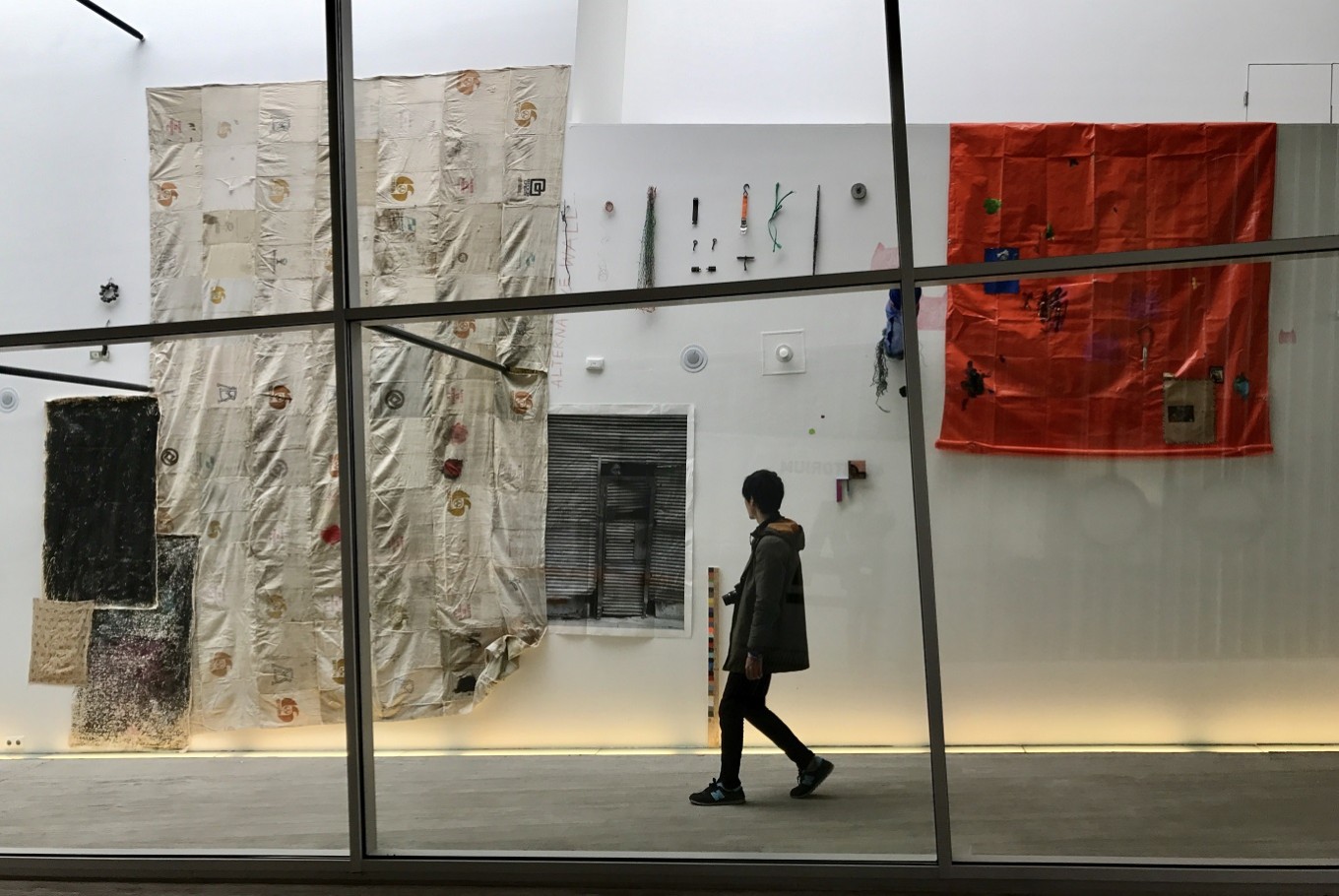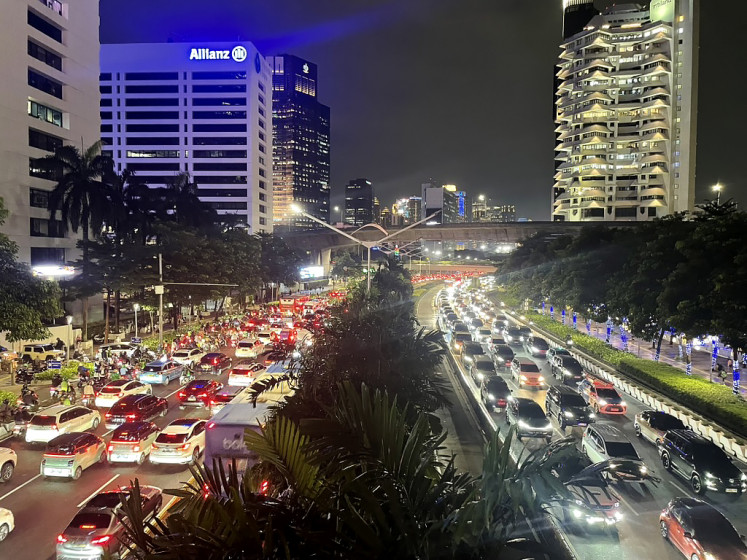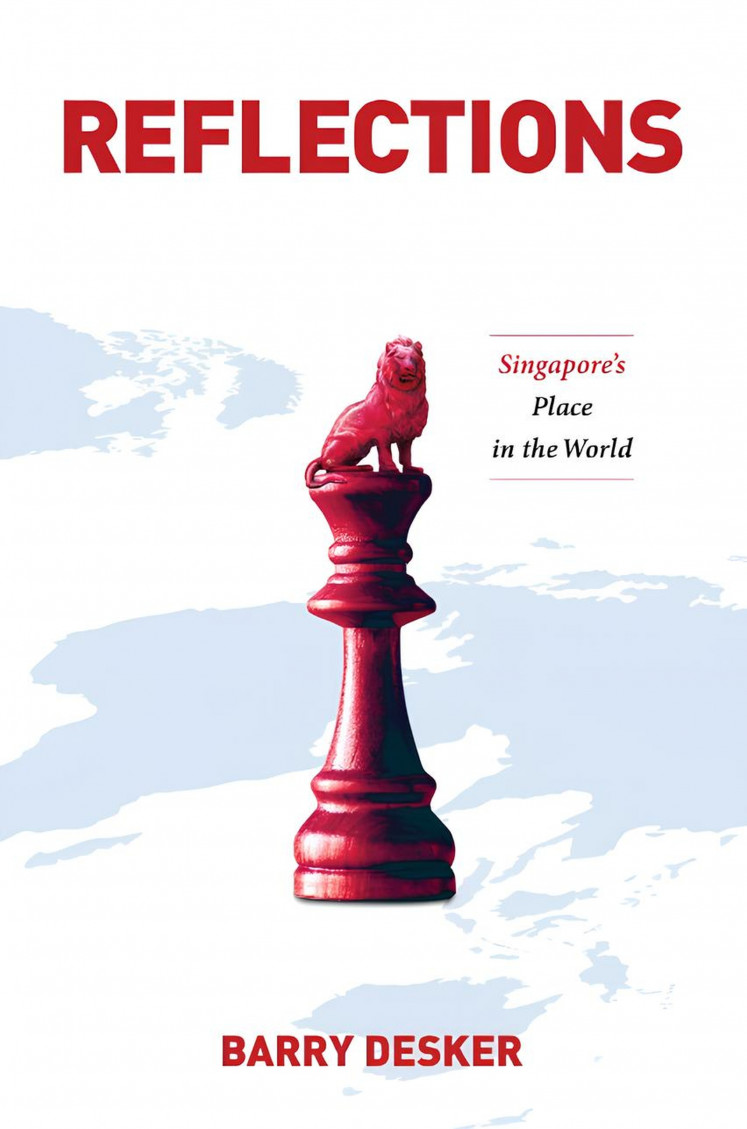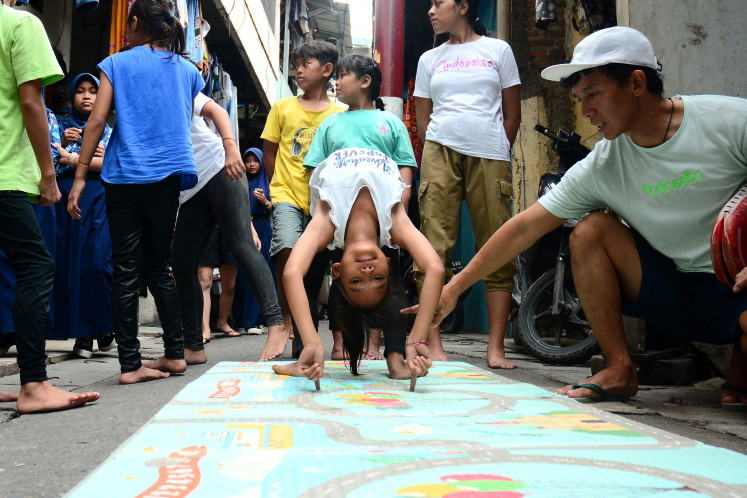Popular Reads
Top Results
Can't find what you're looking for?
View all search resultsPopular Reads
Top Results
Can't find what you're looking for?
View all search resultsIndonesian artist brings home to Rotterdam
Change text size
Gift Premium Articles
to Anyone
K
unsthal Rotterdam, a leading cultural institution in the Netherlands, through it’s program Kunsthal Light challenges artists to create site-specific works to be exhibited in a most unconventional space.
An elongated and narrow, sloping showcase ramp with generous height, Gallery 6, is positioned adjacent to the window at the forefront of the museum. While also functioning as a walkway through which visitors cross from one gallery to the next, it becomes a ‘display cabinet’ for artworks to be appreciated by passers-by outside.
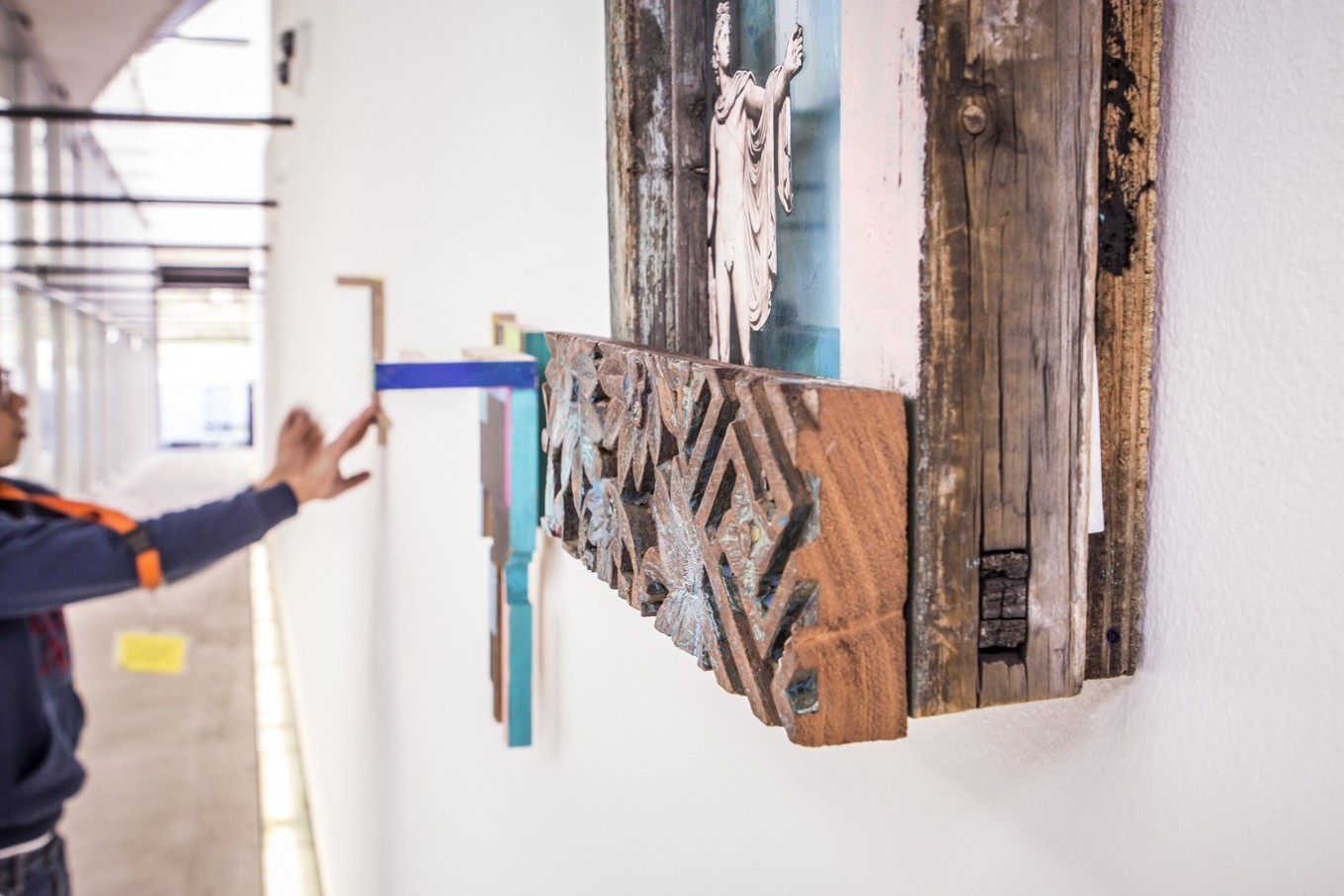 Ari Bayuaji at work(Marcel Kollen/File)
Ari Bayuaji at work(Marcel Kollen/File)
During Kunsthal Light #16, Indonesian-born artist Ari Bayuaji, who lives in Montreal, Canada, occupied Gallery 6 from March 9 until the exhibition’s official opening on March 18, transforming it with his installation No place like home. Constructed from eclectic 3D sculptures, drawings, paintings and photographs, the exhibition, which continues until June 28, features references to locations throughout the world where Bayuaji has been, and the resources that people use to build their homes.
Beginning in early January, Bayuaji visited the Kunsthal to gain vital insight and then returned to Canada to select materials from his studio to be shipped to the Netherlands. Two months later, he was tasked with creating an installation, or a ‘puzzle,’ as the East Javanese, former civil engineer called it.
“The gallery is not just a blank white wall; there are other elements, such as the varying height, CCTV cameras, doors, speakers and a balcony that I must consider and include in my work. I employ plywood, paper, plastic tarpaulin and canvas to represent urban life in different parts of the world, where people might adopt these materials to build a place they call ‘home’.”
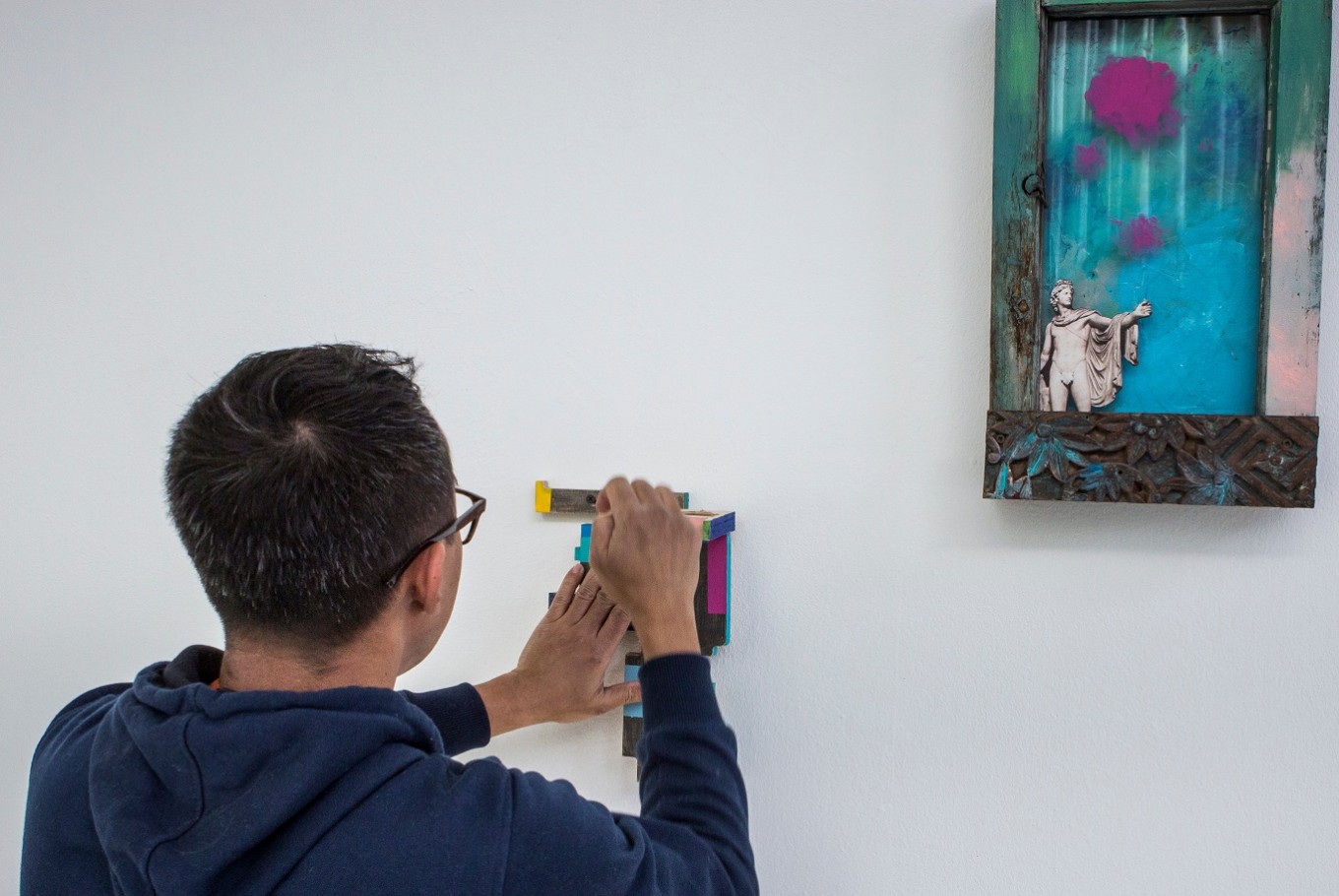 Ari Bayuaji at work(Marcel Kollen/File)
Ari Bayuaji at work(Marcel Kollen/File)
Mundane items from as far as Mexico to Bali become meaningful objects in the hands of Bayuaji, a collector of distinctive, often unusual bits and pieces. Plastic bags and ropes littering beaches are used, while small, weathered windows frame old letters and pictures from magazines. Throughout the installation Bayuaji creates beautiful and contrasting visual landscapes.
“There is no direct connection. The ‘exotic objects’ that came from far away are there for the audience to see, absorb, and to learn more about,” he said. Traditional dancers on a Balinese picture postcard point to the CCTV camera, currency notes, discarded keys and utensils he juxtaposes with colorful geometrical forms painted directly onto the 60-meter long wall.
“I love to work with ready-made objects, like wooden architectural ornaments from old buildings found in Indonesia and Canada. Some of these items may be old, but the ‘content’ is new, as I inject them with emotions that are influenced by the contemporary issues I seek to address in my work,” said the 42-year-old artist, who admits this project has been confronting, yet a career-defining experience as well.
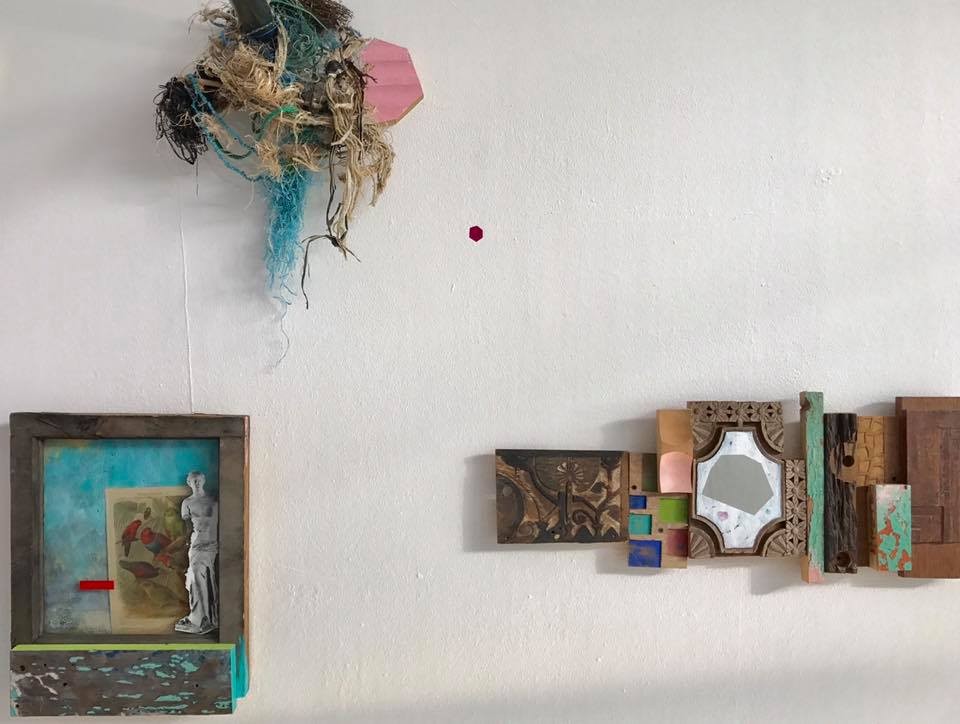 'No place like home' by Ari Bayuaji(Ari Bayuaji/File)
'No place like home' by Ari Bayuaji(Ari Bayuaji/File)
Read also: Cepu-born painter wants to showcase Indonesian culture on the international stage
“Ari came to our attention via Natasha Sidharta, a friend of Kunsthal's director Emily Ansenk. Emily and I where impressed and immediately felt he was a perfect fit for our program,” said curator Natalya Boender. “Ari took his cultural background and heritage and by giving the title ‘No place like home’ and using the general ‘home’ as a subject says a lot about him as a person and an artist. We like artists that are not afraid to tell a story.”
“Working in Gallery 6 is akin to performance art, where visitors can observe my process and can interact with me as they like. This is new for me, because normally I work alone in my studio,” Bayuaji said. “Surprisingly I have enjoyed how they respond, or react. The European audience can be very direct, and this engagement has helped me mature as an artist.”
“Many asked about the materials I used, opening up bigger conversations about my culture and background. Some shared their ideas of ‘home’ and even about their political point of view.”
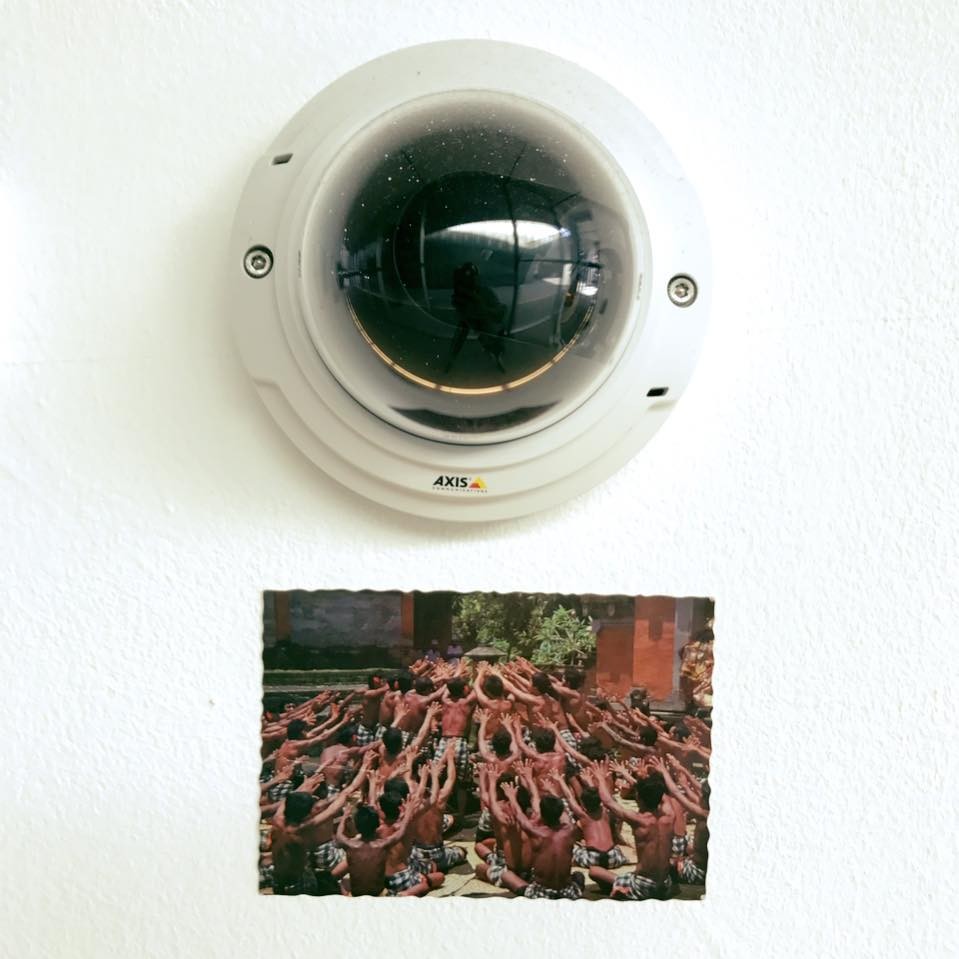 'No place like home' by Ari Bayuaji(Ari Bayuaji/File)
'No place like home' by Ari Bayuaji(Ari Bayuaji/File)
A two-meter square black and white photograph reveals a slum dweller peering out from behind a shanty door, while eighty Mexican canvas moneybags are sewn together to form an ‘Alternative Wall’, Bayuaji’s satire of US President Trump’s border wall and a play on his words of ‘alternative facts’.
“The more freedom I am granted by a big institution, the greater the pressure I feel. I have to create something that I really like to work on to show the public, while delivering my ‘voice’. These considerations help me to work in subtle ways.” Having the autonomy of creating such a large installation helped Bayuaji learn to be the curator of his own work.
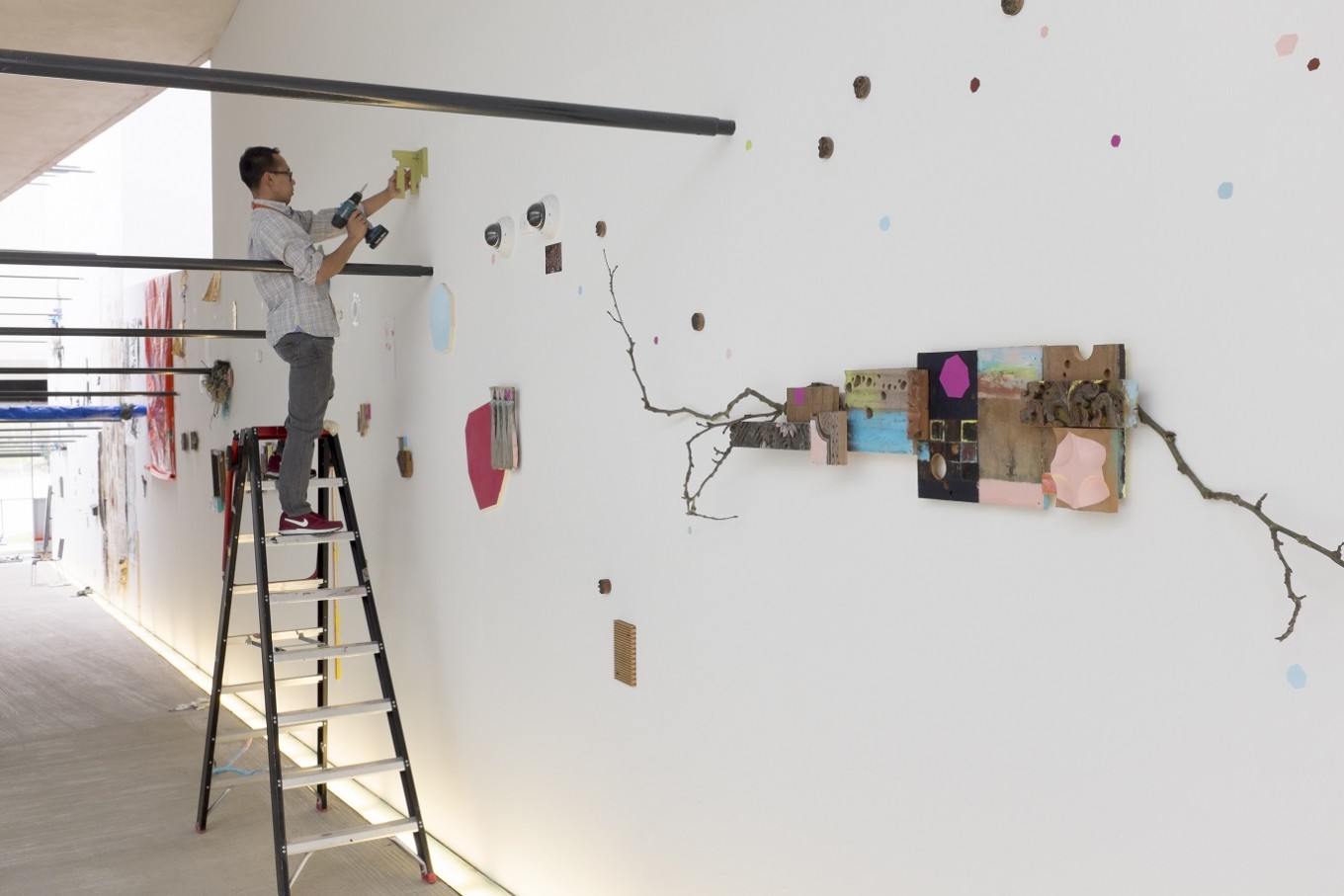 Ari Bayuaji installing 'No place like home' (Marcel Kollen/File)
Ari Bayuaji installing 'No place like home' (Marcel Kollen/File)
Read also: Indonesian batik heritage on display in Surakarta batik museum
“The current geopolitical landscape is rapidly changing the way people live. Many from all over the world have been moving, immigrating and being displaced from one place to the next,” said the artist, who in 2004 moved from Indonesia to Canada to study fine art at the Concordia University of Montreal. “There are many places people call home that have been destroyed because of wars and uprisings, or natural disasters.”
“As a contemporary artist, I want to talk about problems that concern me. I trust that the experience will touch people’s hearts so they may share a little space of their own home for people who need a place to feel accepted and safe.”
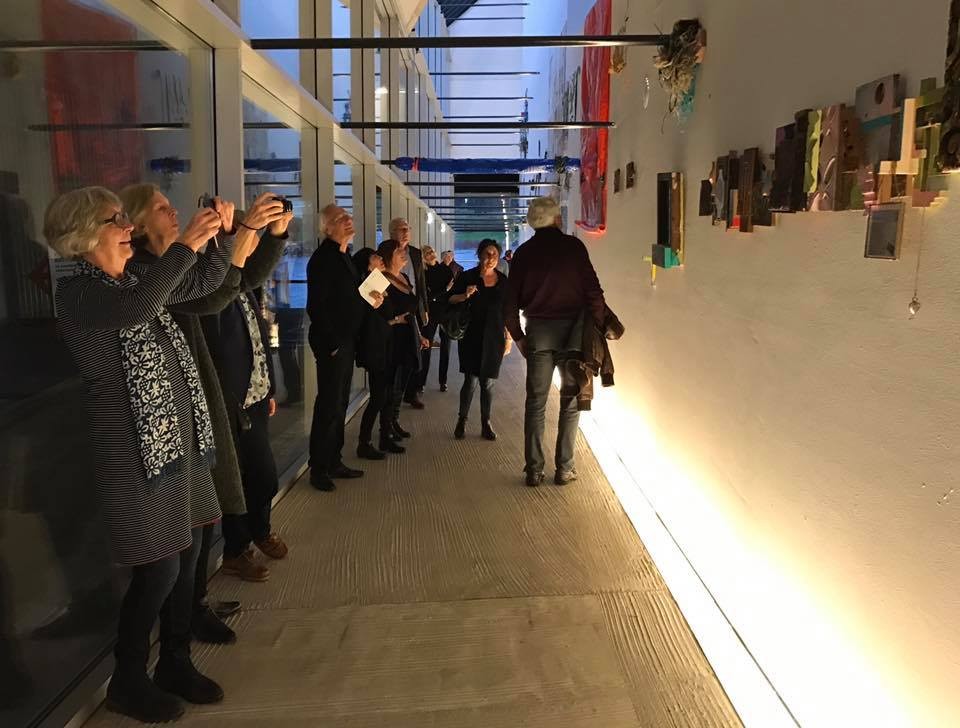 Visitors during the March 18 opening of the 'Kunsthal Light' exhibition(Ari Bayuaji/File)
Visitors during the March 18 opening of the 'Kunsthal Light' exhibition(Ari Bayuaji/File)
“We were really touched by Ari’s commitment to make political jokes in his work while being very serious and poetic at the same time. This is a rare quality, and it makes his work relevant,” Boender adds. “The fact that Ari comments on critical global issues in a very approachable manner is a beautiful way to share experiences and ideas.” (asw)
No Place Like Home,
Kunsthal Light #16
Until 28 May 2017
Kunsthal Rotterdam
Info: +31 (0)10-4400301
Open: Tuesdays to Saturdays from 10 a.m. to 5 p.m.
Sundays and public holidays from 11 a.m. to 5 p.m.
More about Kunsthal Rotterdam at: www.kunsthal.nl
Facebook, Twitter, Youtube, Instagram

